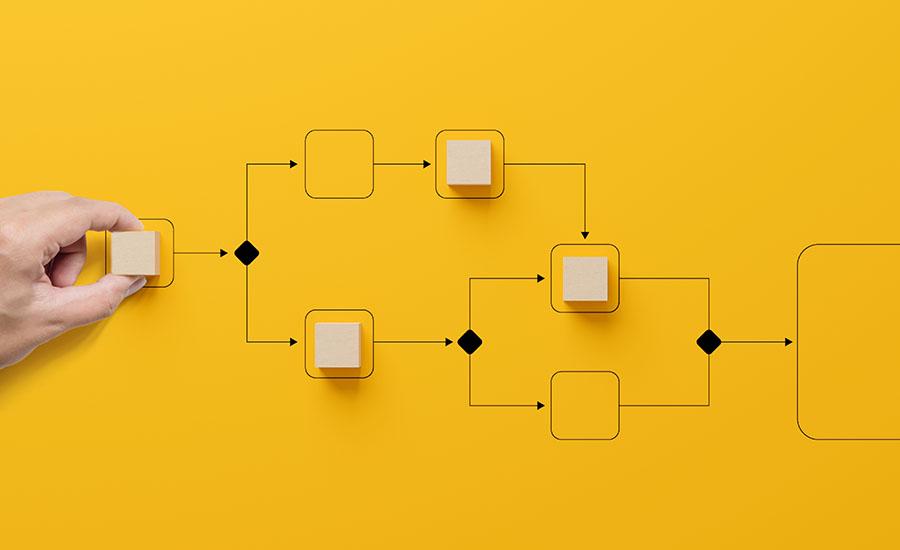Grades:
Kindergarten
This lesson provides the opportunity for kindergarten students to develop a mock oil spill and develop methods to help ocean life after an oil spill. Student will hypothesize methods that can
Grades:
5th Grade
In this lesson students will get the chance to mine for ore but then work on the processing phase and manufacturing phase of mining. Students will mine their ore (peanuts), process their ore (shell
Grades:
5th Grade
In this lesson plan students will continue to explore and understand the mining process. Students will have a budget and have to purchase land and equipment to be able to mine it. Students will get a
Grades:
6th Grade, 7th Grade, 8th Grade
This lesson shows how to use VEX IQ robots in your classroom. There are links to the VEX free resources that can be used to help new or experienced robotics teachers.
Grades:
3rd Grade, 4th Grade, 5th Grade
Students will determine the best materials to use to build their school budget. They will create several garden models and determine which garden they ultimately want to build. Students will then
Grades:
Kindergarten, 1st Grade
In this lesson students will explore bugs and their attributes. Students will also understand the difference between an insect and a bug, use math skills such as counting and symmetry, and also have
Grades:
6th Grade
My lesson plan is entitled: Popsicle Stick Catapult. This lesson focuses on making a catapult out from popsicle sticks. This can be done inside the classroom where the students will be having fun
Grades:
7th Grade
In this lesson, the students will use the Sphero bots and the data they collected in previous lessons to create block-code to navigate a course for the Sphero Bolt to travel. The block code used is
Grades:
Kindergarten
Students will explain how the apples are changing numbers through stem challenges and physical tests in this early childhood lesson.
Grades:
Kindergarten
Students will explain the difference between sink and float through hands on experiences in this early childhood lesson.
Grades:
4th Grade
Students learn how energy transfer and electrical circuits energy are similar and different.
Grades:
8th Grade
Investigate how red wigglers rebuild soil by processing food scraps and depositing their casts into the soil. Student groups will have their own worm bins to care for and they will gather data about
Grades:
6th Grade
In this lesson students apply their Medieval Times knowledge and energy transfer to create a knight that will compete in a jousting tournament using spheros. The students will use a solo cup as the
Grades:
7th Grade
In this lesson students will be exploring the ball drop phenomenon in order to gain an understanding of Newton's second law of motion. Students will observe the phenomenon demonstration and then
Grades:
5th Grade, 6th Grade
Students build a Tetrahedral kite while learning about problem solving, patience and diligence to finish a task. They will also be able to explain lift and force and apply the steps of the engineering
Grades:
7th Grade
In the lesson on upcycling empty water bottles, students will embark on an innovative and eco-friendly exploration of creative reuse, incorporating science, technology, engineering, and math (STEM)
Grades:
7th Grade
In the STEM Pine Cone Decoration lesson, students will embark on a creative and hands-on exploration of nature-inspired crafting, integrating science, technology, engineering, and math (STEM) concepts
Grades:
6th Grade
In this lesson it will take two or more days for groups or student(s) to build their eco friendly sustainable house. They need to consider their budget as well as what materials will represent each
Grades:
6th Grade
Students will research and use math calculations to set up a classroom worm compost bin to compare to a classroom non-worm compost bin to be utilized for observation throughout the school year for
Grades:
8th Grade, 9th Grade, 10th Grade
In this activity, teachers will guide students through a simulation that models the population dynamics between fish and bears. The objective is for students to understand and analyze the interactions
Grades:
6th Grade
In this lesson students will identify different types of sustainable housing, engage in depth learning with hands on experience of what it takes to build a home from the outside to the inside
Grades:
5th Grade
This lesson uses magnets, playing cards, metal washers, and a PhET simulation to model the effects of mass and distance as acting forces on objects in our solar system.
Grades:
3rd Grade, 4th Grade, 5th Grade, 6th Grade, 7th Grade, 8th Grade
This lesson is intended to expose students to information about environmental changes and how solar energy affects living things. Students are challenged to design and build a shelter for a dog to
Grades:
10th Grade, 11th Grade, 12th Grade
A look at all of the anatomy homeostatic responses that the body has. Each section has a lab or calculations.
Featured Lesson Plans
Check out these notable lesson plans.

Featured
Zippy the Elf's Zipline Zone
Grades:
6th Grade
In this creative engineering design lesson, students are challenged to use an inclined plane to create a safe and exciting zipline park for Zippy the Elf. This lesson reviews simple machines and has

Grades:
3rd Grade
This lesson is about exploring Arizona's state bird, the cactus wren, that lives in the desert, has special body parts and behaviors that help it survive in its harsh environment. Students will learn

Grades:
Kindergarten, 1st Grade
In this primary Kindergarten-1st grade STEM lesson, students will learn to define algorithm, bug, and debug in reference to programming. Through engagement with a virtual simulation, students will
